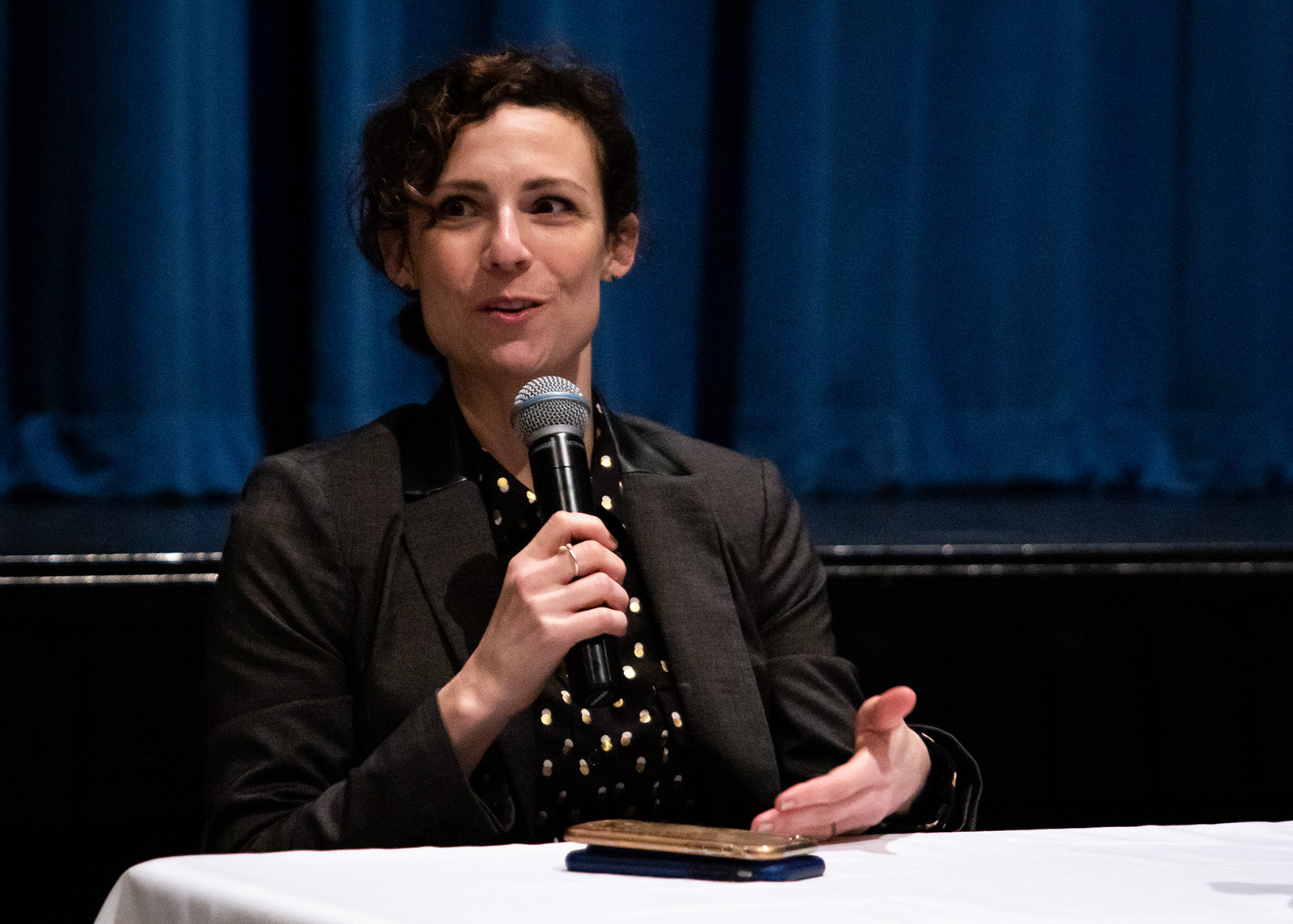Panel held by USAC and Bruin Consent Coalition discusses Title IX policy

Alicia Oeser (pictured), the director of UCLA Campus Assault Resources & Education, was one of several panelists that discussed how sexual violence and Title IX policy affect the lives of UCLA students at a town hall Wednesday. (Ashley Kenney/Daily Bruin)
By Simone Ritchie
Feb. 28, 2019 12:56 a.m.
This post was updated Feb. 28 at 4:17 p.m.
Students and panelists discussed the effects of Title IX policy on UCLA students Wednesday night.
The Bruin Consent Coalition and Undergraduate Students Association Council Office of the President held the town hall to analyze the intersection of sexual violence, Title IX policy and student life. Panelists included representatives from administration, legal services, Campus Assault Resources & Education, and the Title IX office.
Jerry Kang, the vice chancellor of equity, diversity and inclusion, said the University of California will not change its policies to reflect federal Title IX changes, which lowers requirements for university involvement in Title IX proceedings.
“The radical changes compared to what we have right now that is recommended in regulations go too far,” Kang said.
Students asked how they could advocate for more funding for institutions that deal with issues of sexual violence. Kang said students should put pressure on UCLA’s major sources of funding: the UC Board of Regents, the UC Office of the President and Gov. Gavin Newsom.
Panelists also addressed student concerns about measures implemented to prevent sexual assault and harassment. Proposed prevention strategies included training programs, educational events, and collaborations with student groups.
Alina Ahmed, TimesUp director and a fourth-year political science student, said she hoped the event would provide students with a safe platform to ask questions about policy.
“I hope students have access to answers and can get the answers directly from administrators, rather than having to research or look up themselves, and just ask what they want,” Ahmed said.
USAC President Claire Fieldman said she wanted to use USAC’s access to administrators to initiate dialogue.
“We hope that this will also enable us to create some accountability on the admin side … and continue to make them aware of what student priorities are around sexual violence and harassment policy,” Fieldman said.
Ko Smaoui, a second-year physics student, said she felt the panelists’ claims about the university’s commitment to preventing sexual harassment and sexual violence conflicted with administrators’ responses to the issue in the past. She cited denied grants for research on campus sexual violence, Title IX redaction policies and administrators’ response to former history professor Gabriel Piterberg’s misconduct as examples.
Kang said while he acknowledges student concerns about certain policies governing Title IX cases, these policies exist to protect plaintiffs and defendants.
Kang added UCLA mandates employees to report sexual misconduct, even if it is said in confidence, to the Title IX office.
Candi Smiley, a Title IX deputy coordinator, added she thinks the mandatory policy prevents bias and that while incidents must be reported, they do not need to be officially filed.
“Just because the Title IX office knows does not mean an investigation must be initiated,” Smiley said. “It means a survivor is now on our radar so we can contact them and say ‘Hey, are you okay? Would you like to come in and speak with us? Let us give you some confidential resources.’”
UCLA Campus Assault Resources & Education offers outreach programs, trainings in prevention and reporting and similar events for students to seek support if they have experienced sexual violence, according to their website.
Atreyi Mitra, a second-year human biology and society student, said she felt the event was a good start to a productive conversation.
“I think it was a start for students to be able to talk to admin, but my hope is that events like these will continue such that students can continue voicing their concerns to admin to help mitigate the issues of (the) sexual violence epidemic on campus,” Mitra said.

